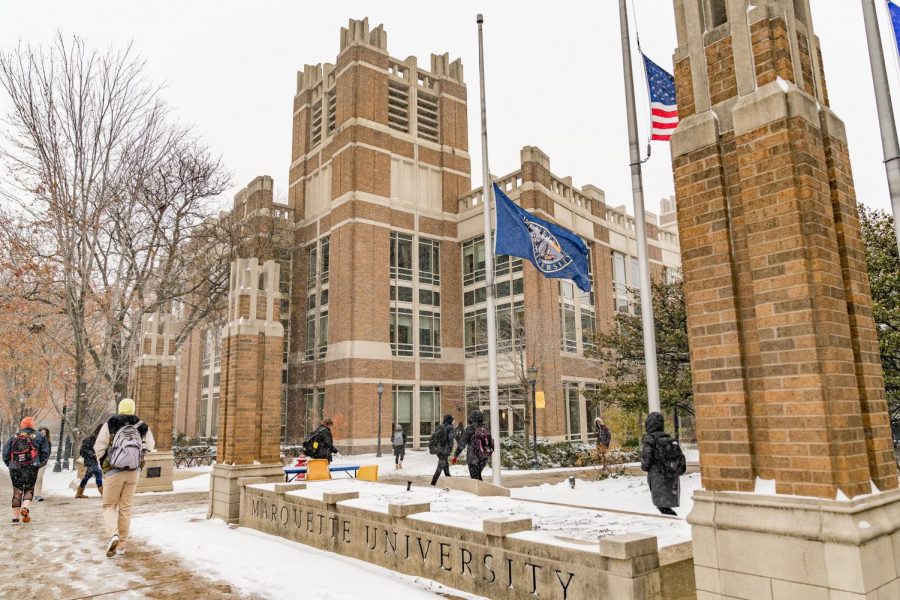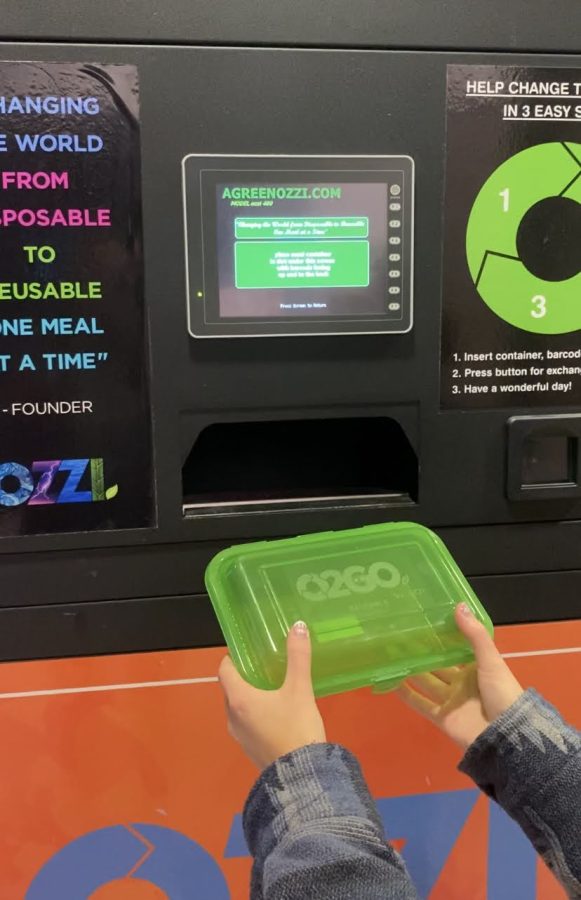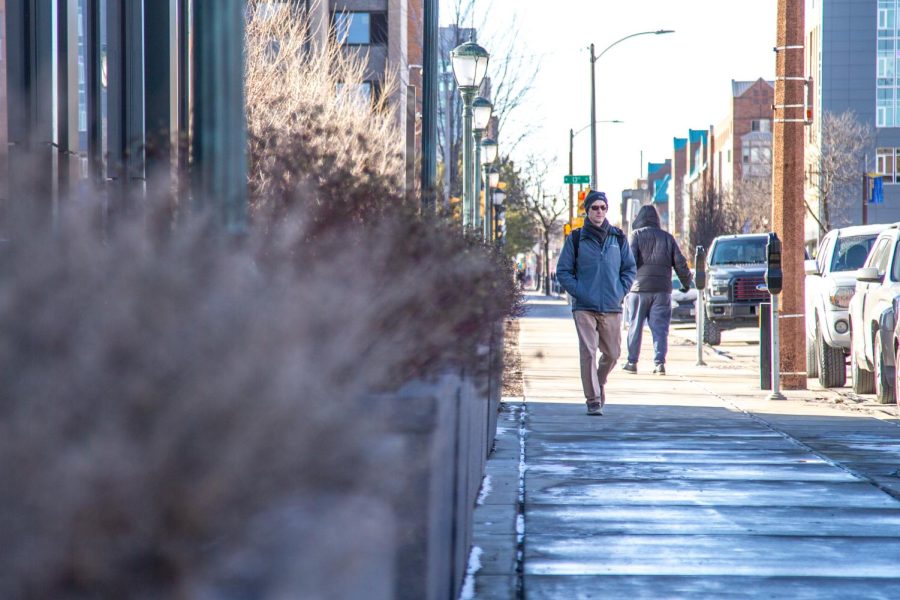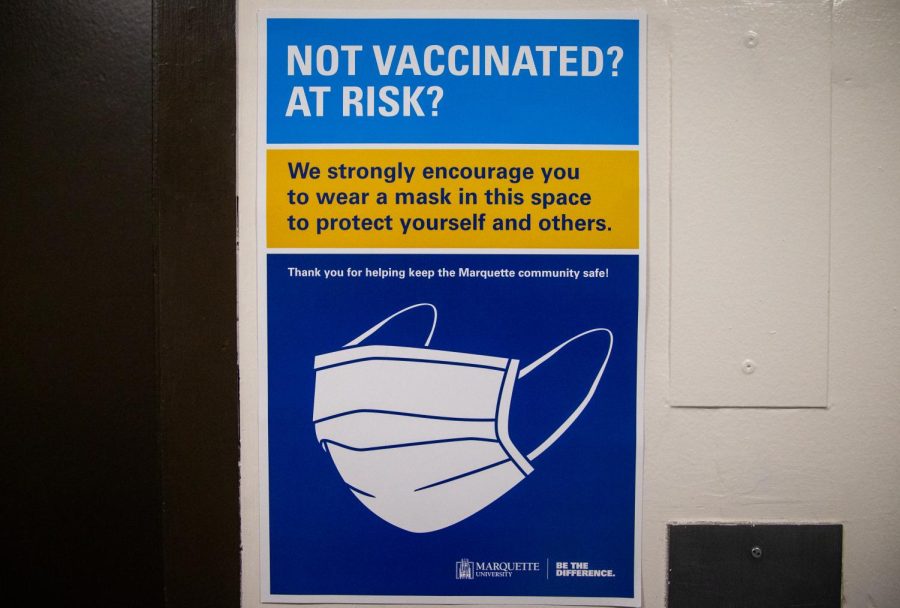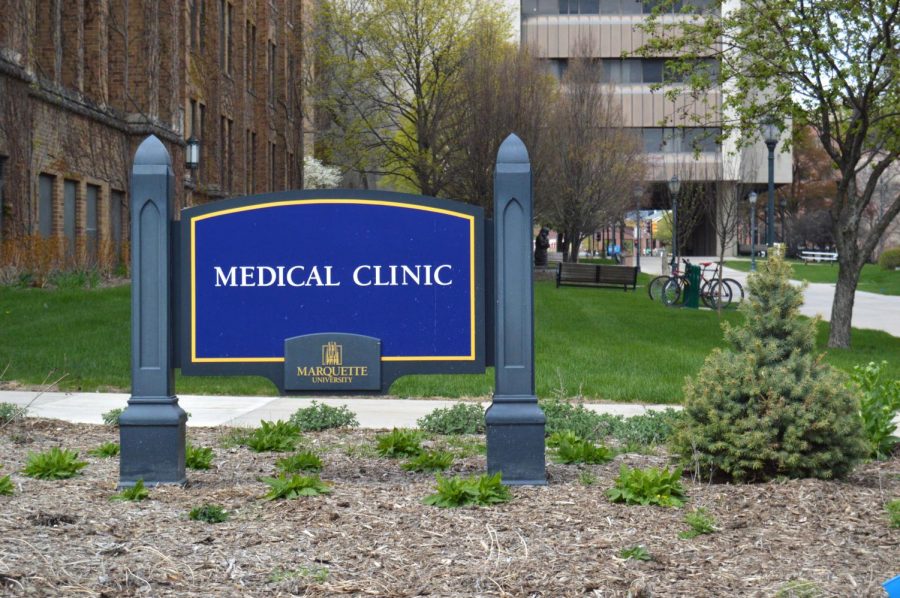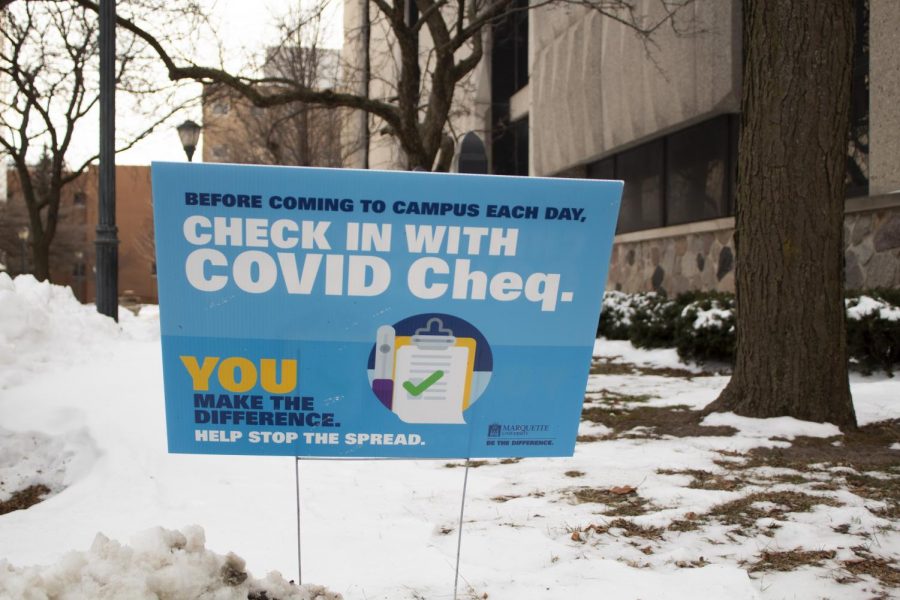Marquette University’s campus planning for the spring 2021 semester, while consisting of several improvements compared to the fall 2020 semester, is still not aggressive enough to mitigate the spread of COVID-19 on campus.
In addition to providing on-campus COVID-19 testing for students with symptoms, the university will also begin “surveillance testing,” according to a Jan. 8 news release. Each week, up to 500 undergraduate, graduate and professional students will be selected for random testing, regardless of if they have symptoms or if they have been recently vaccinated.
Students living on or near campus will be notified the Sunday before the designated week of testing by email, according to a Jan. 21 news release. Surveillance testing will run throughout the 16 weeks of the spring semester and students may be selected more than once for random testing.
The email will instruct students to make an appointment for COVID-19 testing during the week. Students who fail to schedule or attend an appointment during their designated week of testing will be charged a $50 fine and lose access to several campus spaces like the Raynor Memorial Library and the Rec Center. Further failures to get tested on campus would result in a student conduct hearing, according to the university.
This change to the university’s COVID-19 planning significantly increases the number of students who will be tested, as well as increases accountability for students.
However, this is not enough.
While Marquette is improving by testing once students are already on campus, it should have required students to get tested and disclose a negative result before coming back to campus for the spring semester, as the increase of students returning to Milwaukee could potentially put community members at a higher risk for contracting COVID-19.
The University of Wisconsin-Madison required students returning to campus on or after Jan. 25 to get tested on campus and receive a negative result within eight days, according to a university news release.
In addition, UW-Madison announced it would increase testing at multiple testing sites, and they also launched “Safer Badgers,” an app similar to Marquette’s COVID Cheq system. However, rather than filling out a voluntary symptom questionnaire, the Safer Badgers app also requires the user to have a negative COVID-19 test within the past 8 days before turning green, according to a Jan. 8 university news release.
Additionally, the Safer Badgers app provides “anonymous, secure notifications to anyone who has been in proximity to another participating app user who has tested positive for COVID-19.”
Marquette should consider developing a similar way to increase contact tracing on campus.
Moreover, the university should make sure to test students who can be predicted to come to campus more frequently, such as students who live on campus and who have in-person classes.
For example, the University of Wisconsin-Milwaukee will be testing all students who live in residence halls on a weekly basis, and students who come to campus once a week will be tested every other week, according to a Jan. 20 university news release.
Another change in Marquette’s plan from last semester is that instructors will be able to see whether or not students have completed their COVID Cheqs before coming to in-person classes, according to a Jan. 20 news release.
While this may provide instructors with more insight into student participation in COVID Cheqs, they do not have direct access to the results of the COVID Cheqs, which doesn’t show them if a student is experiencing COVID-19 symptoms or not.
Moreover, one way Marquette could have also been proactive in its COVID-19 planning is if it moved the first two weeks of classes for the spring semester online, so all students could self-quarantine.
Moving forward, the university should make necessary and aggressive changes to its COVID-19 plan to prioritize the health and safety of both the Marquette and Milwaukee communities.
Despite the amount of COVID-19 vaccinations increasing, students’ access to those vaccinations is still uncertain for the near future. The pandemic is still ongoing and cases are still increasing; On campus there have been nearly 995 confirmed COVID-19 cases since Aug. 21, according to the COVID-19 Dashboard.
Marquette must ensure it is doing everything to protect students, faculty and staff.
Editorial topics by the Marquette Wire are decided at weekly meetings between members of the executive board. The editorial is crafted with leadership by the executive opinions editor. The executive board consists of the executive director of the Wire, managing editor of the Marquette Tribune, managing editor of the Marquette Journal, general manager of MUTV, general manager of MUR and nine additional top editors across the organization.

